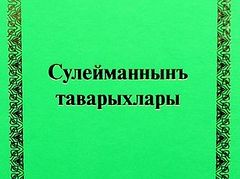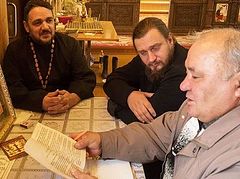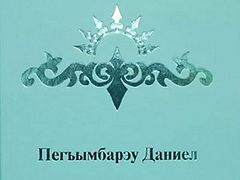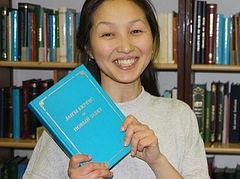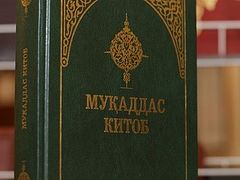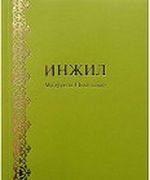Tomsk, Russia, February 13, 2018
The Gospel of Mark has been fully translated into the Chulym language, which is in danger of completely disappearing, reports the site of the Diocese of Tomsk of the Russian Orthodox Church.
Representatives of the small indigenous Chulym people of Siberia of Turkic origin, whose name comes from the Chulym River (a tributary of the Ob), mainly live in the Teguldet region of the central Russian Tomsk Province. According to a 2010 census, the number of Chulyms living in Russia does not exceed 360. The Chulym ethnic group was formed in the 13th-14th centuries and was later largely assimilated by the Khakas and Russians.
The Missionary Department of the Tomsk Diocese is helping the Chulym people to translate the Gospel into their language, to help them preserve the culture of the whole ethnic group, and to prevent its disappearance. The Chulyms will use the sacred texts to teach their native language to their children and grandchildren.
As previously reported, work on the translation began in the fall. As of late October, two chapters of the Gospel of Mark had been translated. Teguldet resident and native-Chulym speaker Vasily Gabov, one of the few remaining, is participating in the project, with spiritual support and expert assistance coming from the head of the Missionary Department Fr. Alexey Samsonov.
“The entire Gospel of Mark has already been translated, and the first reading from the Gospel of John—the Paschal reading, which we read at Pascha in various languages,” Fr. Alexei said.
The Gospel of Mark in Chulym is now being prepared for publication. Valeriya Lemskaya, a linguist from the Tomsk State Pedagogical University who specializes in endangered Siberian languages, is working on the editing, and will also produce a translation back into Russian from Chulym, with a comparison of this version with the Russian Synodal translation of the Holy Scriptures.
All four Gospels will be translated in the future, but the first priority is a separate publication of the Gospel of Mark. “Time is against us, and the Chulym want to start teaching their language to their children and grandchildren as soon as possible,” Fr. Alexei explained.
The majority profess Orthodoxy, although some shamanistic traditions remain. 12 Chulyms were baptized in the village of Novomushilovo last spring, and another 70 were baptized last week in the villages of Chindat and Pasechnoe.


